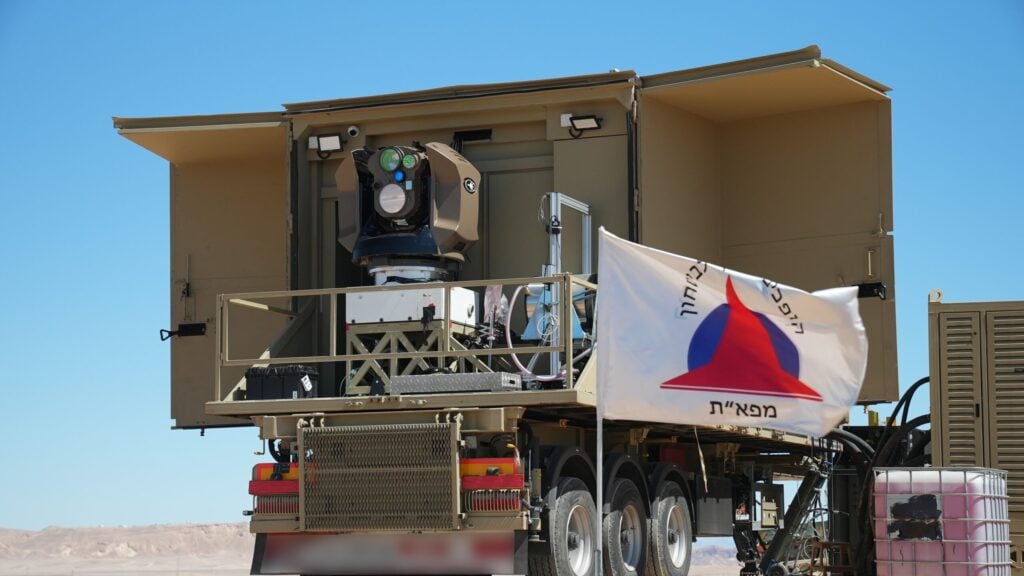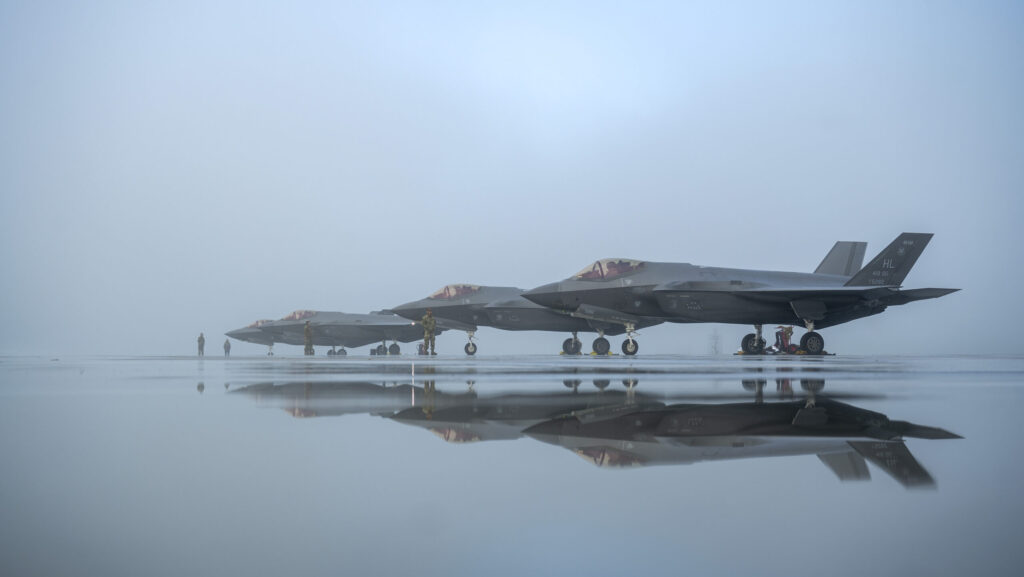The Israeli-developed Iron Beam laser system. (Israeli Ministry of Defense)
JERUSALEM — The outbreak of war following the Oct. 7 terrorist attacks has not derailed Rafael Advanced Defense Systems, a key player in Israel’s defense industry, and the company is on track to deliver its laser-powered Iron Beam system in 2025, according to a top executive.
“Rafael’s performance of 2023 has reached heights that we have not expected, and these will be published on the beginning of April as a summary for 2023,” Gidi Weiss, Vice President of Strategy, Business Development and Marketing at Rafael, told Breaking Defense. But, he said, only a small portion of the company’s growth over the last 24 months has come from either the Israel-Gaza conflict or the conflict in Ukraine.
“The characteristic of the big picture to summarize 2023 is we have reached these new peaks based upon our good standing and reputation and high value proportion to our customers based on long term relationships and competitions we have been participating in over the past few years,” Weiss says. In other words, the current position of the company reflects a long-term trend and that the impact of the current war, now in its fifth month, won’t be felt or realized until some time in the future.
Rafael, whose products include the Iron Dome air defense system and the Trophy active protection system used on Israel’s main battle tanks and APCs, plays a central role in the current war effort. Israel has not published recent data on Iron Dome interceptions, but as of January claimed more than 9,000 rockets fired at Israel from Gaza and also 2,000 from Lebanon and Syria. The Israel Air Force says that there have been “tens” of interceptions by David’s Sling, which is also made by Rafael.
It is unsurprising, then, that the company sees a robust desire for air defense systems moving forward. One capability that Israel has been talking about deploying over the last several years, but which has not been active for the current conflict, is a ground-based laser air defense system, known as the Iron Beam.
In October 2022, a company official told Breaking Defense the Iron Beam would be ready in “two-to-three years,” and Weiss confirmed this week that Rafael expects the system to be fielded “by the end of 2025.” He added that the system has actually been under contract for a “year and a half.”
In addition, in January Rafael said it had completed trials with its Spyder air defense system with Israel’s Ministry of Defense. The Spyder is usually sold abroad as an air defense tool that uses the company’s Python and Derby interceptors, used often to counter aerial threats. Weiss said that the need to protect Israel against a “multitude of drones and UAVs from Hezbollah, and drones and cruise missiles from the Houthis in the south” led to a test that “showed the ability to integrate the system and aptly neutralize threats we see in this arena.”
Spyder would bolster Israel’s existing multi-layered air defenses, which in recent months have had to deal with more threats on more fronts than in previous wars. Weiss also says the company is addressing “immediate improvements and integrations and fixes of issues and technical problems, immediate application of improvement [based on] suggestions from the war fighters, this was phenomenal on all fronts: Land, air, naval cyber, intel, communications.” He did not elaborate on specific changes to systems Rafael supplies the IDF.
In terms of ground vehicles, the exec couldn’t say how many of its systems, such as Trophy, have actively been engaged in the conflict in Gaza. But that didn’t stop him from bragging about the relative lack of casualties for ground forces. (Israel doesn’t release details on the number of tanks damaged, but there have been only a few published incidents in which numerous casualties resulted from impacts to APCs.)
“Never in the history of warfare have there been so many tanks and APCs involved in such a small and tight ground maneuver,” Weiss noted, boasting that Trophy has played a major role in protecting the Israeli forces.





















Discussion about this post